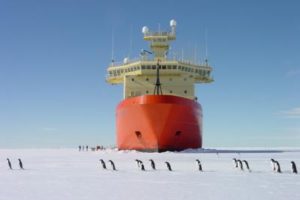west antarctica
Marine animals suggest evidence for a trans-Antarctic seaway
A tiny marine filter-feeder, that anchors itself to the sea bed, offers new clues to scientists studying the stability of the West Antarctic Ice Sheet — a region that is thought to be vulnerable to collapse(1).
As part of a study for the Ce…
Hitchhiking rocks provide details of glacial melting in West Antarctic
Rocks deposited by glaciers on mountain ranges in West Antarctica have given scientists the most direct evidence yet that parts of the ice sheet are on a long-term, natural trajectory of melting. The West Antarctic Ice Sheet has been melting and contributing water continuously to the ocean for the last 10,000 years and is likely to keep doing so, says John Stone, University of Washington associate professor of Earth and space sciences. Measuring and understanding changes in the Earth?s ice sheets over the past few decades, and predicting their future behavior are major challenges of modern glaciology. But it is important to view these changes in the context of what?s been happening naturally over centuries and millennia. This work establishes a background pattern of steady decline in the West Antarctic ice sheet.



